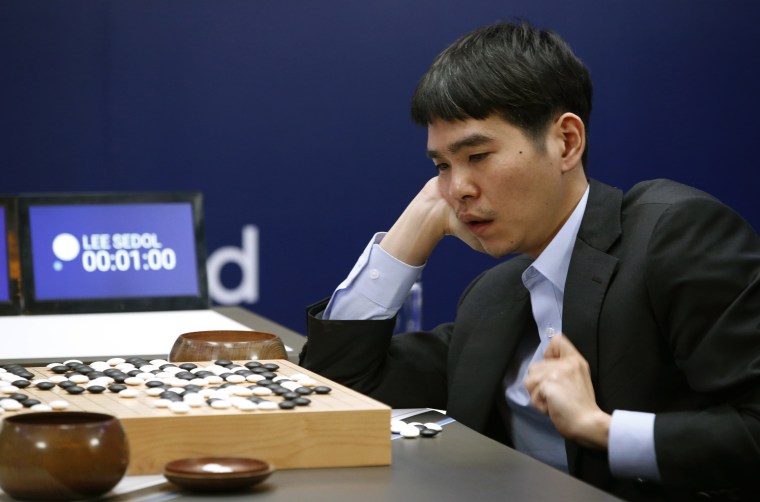SEOUL, South Korea — A champion Go player scored his first win over Go-playing computer software on Sunday after losing three straight times in the ancient Chinese game.
Lee Sedol's victory over AlphaGo served as a reminder that Google's Go-playing program is not perfect and has room for improvement. Lee had said that he lost earlier games because he could not find any weaknesses in AlphaGo's strategy.

AlphaGo — the first computer system to defeat a top Go player — had already clinched the best-of-five series and the $1 million prize, which will be donated to charity. The artificial intelligence computer program was developed by Google DeepMind two years ago.
South Korean commentators could not hide their excitement three hours into the match when it became clear that Lee would finally notch a win. AlphaGo narrowed the gap with Lee, but could not upset the match, resigning nearly five hours into the game.
Go fans whose pride was crushed by the earlier defeats cheered the result.
Related: Human Go Champion 'Speechless' After 2nd Loss to Machine
Prior to the series, Go fans, many of them in Asia, believed that the game would prove too complex for the machine to master.
Because there are near-infinite board positions in Go and top players heavily rely on intuition, the popular Asian board game has remained the holy grail for the artificial intelligence community for about two decades, after chess was conquered by computers.
In Go, two players take turns putting black or white stones on a 19 lines-by-19 lines grid. The goal is to put more territory under one's control by surrounding vacant areas with the stones.